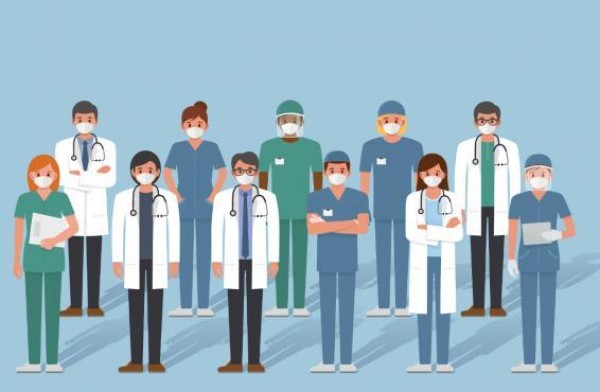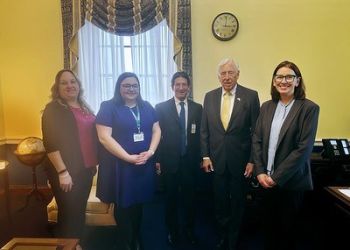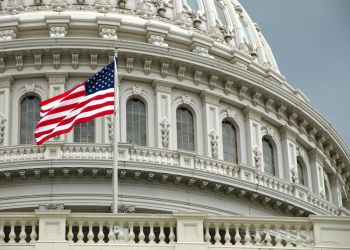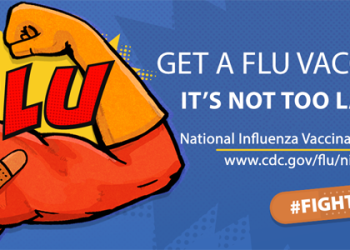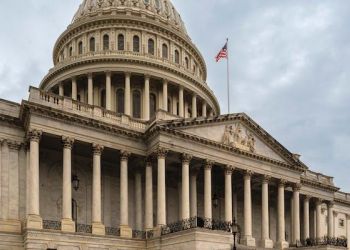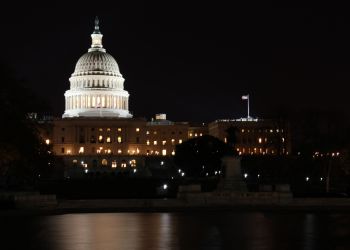On June 13, the House Energy and Commerce Subcommittee on Health held a legislative hearing entitled, “Legislative Solutions to Bolster Preparedness and Response for All Hazards and Public Health Security Threats,” to review multiple legislative proposals including the reauthorization of the Pandemic and All-Hazards Preparedness Act (PAHPA). In this hearing, five witnesses testified, including:
- Dr. Gerald Parker, DVM, PhD, Associate Dean for Global One Health and Director for the Pandemic and Biosecurity Policy Program, Texas A&M University
- Dr. Reynard Washington, PhD, MPH, Director, Public Health Department, Mecklenburg, Country Health and Human Services Agency Mecklenburg County, North Carolina
- Ms. Phyllis Arthur, MBA, Senior Vice President, Infectious Disease and Emerging Science Policy, Biotechnology Innovation Organization (BIO)
- Dr. Julie R. Gralow, MD, FACP, FASCO, Chief Medical Officer and Executive Vice President, American Society of Clinical Oncology
- Mr. Ted Okon, MBA, Executive Director, Community Oncology Alliance
The hearing addressed the reauthorization of PAHPA and proposed legislation surrounding health emergency preparedness. With a number of these programs set to expire in September 2023, both Republican and Democratic members of the House Energy and Commerce Subcommittee on Health spoke in favor of PAHPA reauthorization. Specific programs considered in the hearing include the Strategic National Stockpile, the Project BioShield Special Reserve Fund, and Public Health Emergency Preparedness cooperative agreements among others. Witnesses called for improvement in public health data coordination, medical countermeasures, drug supply, and funding towards public health infrastructure.
During opening remarks, Chairman Brett Guthrie (R-KY) stated that the proposed legislation in this hearing is designed to garner consensus towards improvements in preparedness and response infrastructure. Bills that were under consideration addressed the need to evaluate and support diagnostic testing infrastructure and domestic manufacturing capacity for medical countermeasures, two elements that he said hindered response to COVID-19. Chair Cathy McMorris Rodgers (R-WA) voiced concern over impending public health security threats. She noted the need to reauthorize preparedness programs in the Pandemic and All Hazards Preparedness Act (PAHPA) to address public health threats. In her opening statement, Ranking Member Anna Eshoo (D-CA) expressed the importance of bipartisan teamwork in reauthorizing PAHPA and noted the importance of a strong supply chain. She urged a bipartisan path forward to include policies that help prevent future drug shortages.
Witness testimony began with Dr. Gerald Parker, the Associate Dean for Global One Health and Director for the Pandemic and Biosecurity Policy Program at Texas A&M University. He stateds that while there were many successes in response to COVID-19 pandemic like Operation Warp Speed, the pandemic showed holes in our hazard preparedness and that we “remain dangerously vulnerable to the inevitable next biological crisis.” Dr. Parker urged that there must be enhanced support for state, local, tribal, and territorial (SLTT) authorities and the private sector; near real time situational awareness and supply chain, health systems, and medical countermeasures resiliency; leadership; and biosafety and biosecurity to learn from and prepare for future threats.
In his testimony, Dr. Raynard Washington, a NACCHO member and the Public Health Director for Mecklenburg County, North Carolina, voiced the importance of reauthorizing PAHPA in “protecting and promoting the public’s health and preparing for the next emergency.” He urged improved coordination across all levels of government in responding to national emergencies. Dr. Washington also stated how timely data collection and information sharing at the local, state, and federal level is critical in proper response and hazard preparedness. He discussed the importance of a robust public health infrastructure and the role of local departments in preparing and responding to public health threats. Dr. Washington stated that, “A well-functioning public health system – infrastructure, workforce, disease surveillance, laboratory testing, infection control, and medical countermeasure administration – is pandemic preparedness and must be well resourced at all levels of government before, during and after emergencies.”
Ms. Phyllis Arthur, the Senior Vice Senior Vice President for Infectious Diseases and Emerging Science Policy at the Biotechnology Innovation Organization, stated that to effectively respond to future threats we must invest in biodefense programs and medical countermeasures, and have well established authorities to facilitate them in emergency response. Ms. Arthur noted the importance of public-private partnerships in the research, development, and procurement of medical countermeasure products.
Julie R. Gralow, Chief Medical Officer and Executive Vice President for the Association for Clinical Oncology (ASCO), expressed concerns over health care supply chain disruptions during the COVID-19 pandemic, which led to delays in treatment, medication substitutions, and decreased quality patient care. She emphasized the need for increased transparency surrounding drug shortages and supply chain issues alongside improvements in the Strategic National Stockpile (SNS).
Executive Director of the Community Oncology Alliance (COA), Ted Okon, similarly expressed concerns over the increasing shortage of cancer drugs including Carboplatin, Cisplatin, and Fluorouracil. Mr. Okon stated that the issue stems from financial pressures on drug manufacturers with price caps, discounts, and regulation pinching profit margins and disincentivizing production.
During questioning, Rep. Guthrie asked about the importance and impact of Operation Warp Speed and the role of the private sector in the nation’s preparedness and response. Ms. Arthur explained that Operation Warp Speed was an excellent example of what should be represented in PAHPA. She stated how the work that was done between the federal government and the industry was a partnership that drove increased manufacturing and led to swift vaccine dissemination during the COVID-19 pandemic. Ms. Arthur expressed the importance of having this partnership in the interpandemic period so that we are better prepared for future threats.
John Sarbanes (D-MD) asked about maintaining adequate preparedness for the next public health crisis and how PAHPA will help support this effort. Dr. Washington stated that the investments made in the COVID-19 pandemic were short-term and limited. He expressed that we did not have a proper system in place to address the pandemic and the next public health emergency can potentially be in the near future. He also noted that local public health systems do not receive direct funding for many preparedness initiatives and funding they do receive is often trickled down from the state which introduces significant administrative burden.
Both Rep. Raul Ruiz (D-CA) and Robin Kelly (D-IL) asked about the need to build a more robust interoperable data and analytic public health system and how the government can support efforts to build a national data infrastructure for all hazards. Dr. Washington stated it is essential that we have a reliable data system to ensure proper and timely decision making at all levels of government. He emphasized the importance of data sharing across the federal, state, and local level and the opportunities in partnering with the private sector to increase capabilities. Dr. Parker also described gaps in public health structure to address real-time situational awareness. Dr. Parker similarly made comments on the need to have protected data systems that can share information quickly.
Throughout the hearing, Members expressed concerns over generic drug supply shortages which have reduced the ability of providers to effectively treat patients. Mr. Okon addressed John Joyce’s (R-PE) concerns over generic manufacturing capacity and the impact of the 340b drug program and Inflation Reduction Act. Mr. Okon described the importance of delivering low-cost drugs to patients, however, he described concern that price constraints reduce the ability of manufacturers to profit on already low-priced drugs. Dr. Gralow commented on the effects of the pandemic on the supply chain and stated that the shortage on cancer drugs like Cisplatin and Carboplatin was not “to the degree that we have now.”
